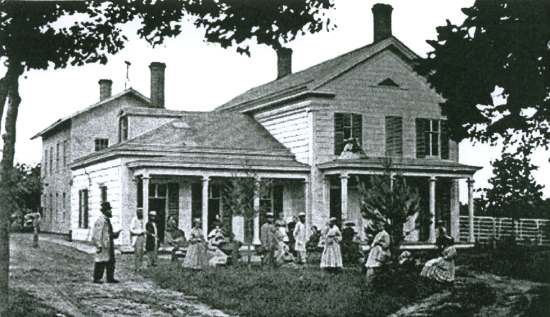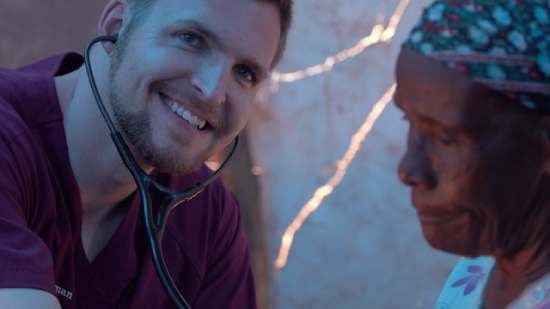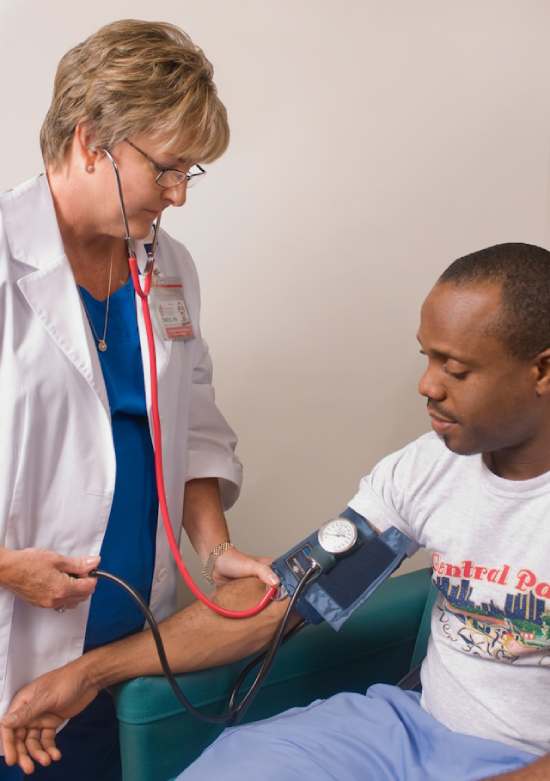What Is an Adventist Medical Missionary?
A medical missionary in the Adventist Church is someone who cares for the medical needs of people as a way of showing the love of Jesus Christ. They may travel to another country, or even just serve in their hometown.
Medical missionaries come from various backgrounds and expertise, but they all share a passion for serving.
In this article, let’s find out more about these dedicated people. We’ll cover:
- What medical missionaries are
- Why Adventists emphasize medical mission work
- How Adventists approach this kind of work
- How to become a medical missionary
What medical missionaries are
Medical missionaries are licensed medical professionals who volunteer to help meet people’s medical needs, often in underprivileged communities or regions of the world.
They may be:
- Nurses
- Doctors
- Surgeons
- Dentists
- Physical therapists
- Medical students
- Trained volunteers
- Anyone with medical expertise
Sometimes, people within the Adventist Church describe medical missionaries more loosely as people who:
- Have some training and knowledge about health
- Know about natural or herbal remedies
However, the most well-known understanding of a medical missionary is someone who is a licensed professional, and they will be our focus for this page.
These missionaries might choose to travel to a community on the other side of the world to help, or they might help those in their own community. But the key is, they aren’t doing it for the money. In fact, they probably aren’t getting paid.
They want to help others as a reflection of Jesus’ ministry.
One of the greatest aspects of Jesus’ earthly ministry was His work to heal the sick, injured, and dying. Medical missionaries follow in His footsteps using the knowledge and training they’ve received.
Dr. Peter Landless, director of Adventist Health Ministries, sums it up this way:
“[Medical missionaries meet] people’s needs in a practical way by demonstrating God’s love and compassion.”1
They aren’t necessarily there to preach to their patients, but in a way, they are. Their care is a visible, hands-on demonstration of who God is.
Let’s see how medical missionaries became such an important focus in Adventism.
Why Adventists emphasize medical mission work

Photo by ThisisEngineering RAEng on Unsplash
Adventist Christians believe in the power of the medical missionary because of the immediate physical help they can provide—a different approach from regular evangelism.
By helping a person’s physical needs first as Jesus did, medical missionaries are taking a practical approach to evangelism that may resonate more deeply with people. When people experience the loving care of doctors, they glimpse how the doctors reflect what Jesus did for each of us by dying on the Cross.
We are coming to them, showing love and care, even if they don’t care at all about Jesus yet. That is the same attitude Jesus had toward the people He ministered to.
As we’ve already pointed out, Jesus Himself placed a heavy emphasis on healing during His earthly ministry. Often, He healed as He traveled, taught, and preached. A few well-known examples are:
- The man at the pool of Bethesda (John 5:1-9). The man had not been able to walk for 38 years. Jesus told him to rise, and immediately the man was healed.
- The ruler’s daughter (Matthew 9:18-26). This girl had died, but Jesus came, took her by the hand, and raised her back to life.
- The epileptic boy (Matthew 17:14-18). The disciples had tried to heal this boy, but they didn’t have enough faith. So Jesus performed this miracle.
- The blind man (John 9:1-7). This man had been blind from birth. Jesus put clay on his eyes and had him wash in a pool. The man could see from that moment on.
Jesus performed many miracles like these, resulting in the people “glorif[ying] the God of Israel” (Matthew 15:31).
In the same way, Adventists follow in Jesus’ footsteps, pointing their patients to Jesus, the Great Physician. This, in large part, stems from our long-time interest in health.
Where it all began

“Courtesy of the Ellen G. White Estate, Inc.”
From its early years, the Adventist Church has valued a holistic lifestyle of caring for spiritual, physical, and mental health. Not long after the church’s founding, one of its leaders, Ellen White, received instruction from God on principles for physical health—from diet to exercise to sleep. She promoted these principles, encouraging church members to care for their health as a way of honoring God (1 Corinthians 10:31).
Not long after in 1866, the Adventist Church established the Western Health Reform Institute. This health center not only treated sickness but also taught patients how to live a healthier life.2 It was the first of many health institutions, including hospitals, clinics, and more. Adventists trained doctors, nurses, dentists, and other professionals to serve in these places, too.
As the Adventist mission field broadened to other continents, the church increasingly realized the importance of sending trained medical professionals to places with limited medical knowledge as a way of expanding their efforts in those locations.3 So, the concept of medical missionaries was born.
In the beginning, these missionaries followed the establishment of other Adventist missions in the Pacific Islands, Europe, Africa, and the Middle East.4
In the early 1900s, the General Conference—the leading body of the church—appointed a medical missionary department, with representatives from every continent.5 From then on, missionaries have traveled around the world to reach people, both on short-term trips and long-term residencies.
Today, Adventists operate:
- 230 hospitals and sanitariums
- 116 nursing homes and retirement centers
- 1,906 clinics6
These hospitals and clinics often provide free care for patients who wouldn’t otherwise be able to afford it. The goal is to help people and show them Jesus.
Let’s get a look at some of the details.
How Adventists approach medical mission work

Photo by TopSphere Media on Unsplash
Medical missionary work can take many different shapes. On the international level, trips to other countries like China, India, or Zambia are often organized as short-term or long-term posts.
A short-term medical mission trip may include setting up a temporary clinic or establishing a permanent one—but the trip itself is only a few weeks. Licensed and trained medical workers are always present on these trips, but sometimes students or non-medical volunteers go too. Under the licensed professionals’ supervision, the others learn how to do simple tasks to help with the medical work.
In some cases, Adventist universities or high schools will conduct a trip with a group of regular students. While helping others, the students get to experience firsthand the benefits of treating people and portraying Jesus’ love. This may inspire them to become future missionaries or pursue a degree in nursing or another branch of medicine.
Long-term mission trips often include the establishment of mission hospitals or clinics in a certain area, with teams of missionaries who stay for many years to run them.
But medical mission work isn’t only an international effort.
Medical missionaries may even serve their own hometowns through various initiatives. Sometimes, a church will organize a health seminar, inviting members of the community to hear a doctor share about a healthy lifestyle and disease prevention. The church may offer healthy cooking classes or exercise programs, as well.
This is what makes Adventist medical missionary work unique. No matter the situation, the missionaries seek not only to treat the illness but also to teach the patients how to develop healthy habits and improve their quality of life—physically and spiritually.
While Adventist medical missionaries do perform their work out of a desire to share Jesus’ love, they never try to force or pressure people to accept their beliefs. We highly value religious liberty, and accepting Jesus as Savior is always a personal choice (Revelation 3:20).
How to become a medical missionary
While there isn’t one specific Adventist medical missionary organization, there are plenty of opportunities available.
Many times, you can find an opportunity through local churches, which may sponsor trips or individuals or take part in regular trips. Contact the pastor of your local church for more information, and he can guide you to a trip.
After signing up for a trip, you may have to go through some preliminary training or overall briefing of the assignment.
Adventist schools, like Loma Linda University, or organizations, including ADRA (Adventist Development and Relief Agency) and Adventist Health International, also provide medical mission opportunities. These trips may include doctors, nurses, techs, assistants, and dentists for a rounded care team.
Adventist programs not directly associated with the church, such as Wildwood Center for Health Evangelism, also organize trips and offer training courses for candidates to take.
Many times, general mission trips also have a medical component, such as those organized by Maranatha, an organization that funds and carries out construction projects. Be sure to contact the organizers to ask about opportunities for medical work on a trip.
For many official medical trips and roles as long-term medical missionaries, your organization may request a resume or require you to take training classes to ensure that you’re qualified for the position.
Like any mission trip, medical missionary trips cost money. Your church or Adventist school may support part of the bill, but in most cases, you will have to fund a good chunk of it, if not the whole cost. Often, you can fundraise together with other volunteers. Similarly, long-term missionaries are typically not paid, but those with multiple-year posts may receive a small amount to help with living expenses.
Medical missionaries—reflecting Jesus’ ministry

Photo by TopSphere Media on Unsplash
Becoming a missionary and traveling to a foreign place with a different culture, people, and even food, can be challenging—even for a little while. It can be hard for missionaries to adjust and help people at the same time.
Nonetheless, the rewards of seeing people cared for and happy can make the challenges worth it for a medical missionary.
This is Jesus’ love in action. They may not be sharing the amazing news of the Gospel directly, but they are representing who the Gospel is all about: Jesus and His endless love and sacrifice. And that can be just as powerful as a direct witness.
Interested in what Adventists believe about medicine?
- Landless, Peter, “What Is Adventist Medical Missionary Work?” SID Live, November 27, 2018. [↵]
- Spicer, William A., “Relation of Our Health Work to the Third Angel’s Message, and the Place of the Medical Department in Our Movement,” The Advent Review and Sabbath Herald, May 17, 1923, p. 3. [↵]
- Ibid.. [↵]
- Robinson, Dores Eugene, The Story of our Health Message, pp. 285-286. [↵]
- Spicer, “Relation of Our Health Work to the Third Angel’s Message.”. [↵]
- Sanchez, Angelica, “Chosen for Mission: Celebrating 160 Years of the Seventh-day Adventist Church,” Adventist News Network. [↵]
Questions about Adventists? Ask here!
Find answers to your questions about Seventh-day Adventists
More Answers
Why Many Seventh-day Adventists Choose a Vegetarian Diet
Why Many Seventh-day Adventists Choose a Vegetarian Diet?You may have an Adventist friend who is vegetarian, or maybe you’re attending a Seventh-day Adventist Church for the first time and notice the potluck doesn’t have any meat. This isn’t unusual in Adventism. In...
The Health Benefits of Fresh Air You Should Know About
The Health Benefits of Fresh Air You Should Know About“When you can’t breathe, nothing else matters,” the American Lung Association tells us. And while that’s true, the kind of air you’re breathing will determine the health benefits you experience. Breathing fresh...
What Do Seventh-day Adventists Choose to Eat?
What Do Seventh-day Adventists Choose to Eat?Food blogs overwhelm the internet; food fads are all the rage; and copycat and healthy versions of food are the subject of many a get-together. Eating—and eating the best way—is a big deal. And everybody has a different...
10 Incredible Ways Sunlight Can Improve Your Health
10 Incredible Ways Sunlight Can Improve Your HealthAre you concerned about sunlight’s negative effects? You might be the one who lathers on the sunscreen and covers up when you go outside. Or maybe you avoid being outside as much as possible. You might be surprised,...
Why Is Water So Important?
Why Is Water So Important?We all know that water is a substance we can’t live without. It quenches our thirst and keeps us hydrated on the inside. And it’s necessary for hygiene and cleansing on the outside too. But did you know that the cleansing properties of water...
Ellen White’s Writings and the Adventist Health Message
Seventh-day Adventists are known for their emphasis on healthy living. And Ellen G. White was a significant influence in the development of this priority and practice among Adventists.
Health Clinics
Ellen White and Adventist Healthcare—Ahead of Their Time Medical care in the mid-1800s was primitive, to say the least. Basic concepts we take for granted—such as proper handwashing or recognizing the dangers of bloodletting—were nonexistent. And doctors often had...
What Did Ellen White Teach about Vegetarianism?
What Did Ellen White Teach about Vegetarianism?One thing you might have heard about Seventh-day Adventists is their emphasis on a vegetarian lifestyle. If you’re wondering why that is, it goes back to our church’s humble beginnings: As Adventists studied the Bible,...
How Ellen White’s Teachings Can Improve Your Health
How Ellen White’s Teachings Can Improve Your Health Healthcare in the nineteenth century was said to leave “more disease than it took away” with its use of bloodletting and “medicines” like mercury and arsenic.1 As people questioned these methods, new approaches...
Change Your Perspective on Life with These 5 Mindsets
5 Biblical Mindsets to Change Your Life for the Better Sometimes, life is just plain hard. There’s no way around it. So would thinking about things differently really change anything? Our perspective on life, and everything it throws at us, affects more than we’re...
Bible Promises for When You’re Worried or Fearful
Bible Promises for When You’re Worried or Fearful The Bible is full of beautiful promises that can comfort us in a variety of situations. They can give us hope when we are hopeless, make us feel grateful for God’s love, and comfort us when we’re grieving or suffering....
12 Practical Ways to Overcome Worry
12 Practical Ways to Overcome Worry DISCLAIMER: This content is for informational purposes only. It does not constitute any professional medical advice and is not intended as a substitute for professional mental health therapy. It’s easy to get stuck in a cycle of...
How the Bible Talks About Worry, Fear, and Anxiety
How the Bible Talks About Worry, Fear, and Anxiety Worry and fear are the ingredients of anxiety. It’s easy to see how the world isn’t perfect—and the anticipation of a bad event or experience (that may or may not even happen) can end up draining the peace and...
How to Calm Anxious Thoughts, Using the Bible
How to Calm Anxious Thoughts, Using the Bible You were expecting a phone call from your daughter half an hour ago, and she still hasn’t called. She’s also not answering your calls. You feel your heart thumping as your thoughts race: What if she’s been in a car...
What You Should Know About the Adventist Health Studies
What You Should Know About the Adventist Health StudiesYou may have heard that Seventh-day Adventists care about health. But what you may not know is that Adventists have been the subjects of long-term research into lifestyle and health. Since 1958, researchers from...
Benefits of Sunlight
Yes, There Are Health Benefits of SunlightDespite the bad reputation it’s gotten, sunlight is generally associated with positivity, as shown by songs like “You Are My Sunshine,” or phrases that refer to delightful people as having a “sunny disposition.” There’s a...
Why Your Body Needs Rest for Optimal Health
Why Your Body Needs Rest for Optimal HealthStruggling to think straight? Wondering why you can’t remember that important tidbit you heard earlier today? Feeling like your emotions are about to explode? These are just some of the symptoms that can reveal your need for...
The Seventh-day Adventist Diet: One of Our Key Longevity Secrets
The Seventh-day Adventist Diet: One of Our Key Longevity SecretsOats, avocados, lentils, tofu—probably not what you first think of in a standard American diet. But if you show up at the home of an Adventist, chances are you may be served one of these staples. Out of a...
Why You Need Fresh Air
Why You Need Fresh Air“When you can’t breathe, nothing else matters,” the American Lung Association tells us. We couldn’t agree more! Breathing in clean air is an essential part of caring for our bodies, which God has given us. Together with other health principles,...
Sabbath Meal
Everything You Need to Know About Sabbath MealsFor Seventh-day Adventists, sharing a Sabbath meal with friends and family is one of the most special and memorable parts of the Sabbath. That’s why we want to share with you all about Sabbath meals and why they’re such a...
Adventists and Healthy Living
Adventists and Healthy LivingWhat’s the Adventist “Health Message” All About? One thing Seventh-day Adventists are known for is their emphasis on living healthy lives. Since our bodies are living temples of the Holy Spirit (1 Corinthians 6:19, 20), we strive to stay...
Water’s Importance—Physical Benefits and Spiritual Applications
Water’s Importance—Physical Benefits and Spiritual Applications We all know that water is a substance we can’t live without. Not only does it quench our thirst and keep us hydrated from the inside, but it’s necessary for hygiene and cleansing on the outside as well....
How Important is a “Day of Rest?”
How Important is a “Day of Rest?” Why God Created a Day for Downtime by Martin Casper Do you ever experience the feeling of complete overload? Do you feel like the only way you can get ahead is by slamming it 24/7? I hear these types of comments more and more...
7 Reasons Why a Day of Rest is Important
7 Reasons Why a Day of Rest is ImportantWe live in a fast-paced world. It seems as if success is measured in how much you can do in a short amount of time. (Extra points for the service or product that is available 24/7). The idea that we will be more successful if we...
How do Adventists choose what to eat?
How do Adventists choose what to eat?Every day, parents go through the ritual of getting their kids to eat what is healthy and good while trying to steer them away from what can hinder the growth of their developing bodies. Nutritionists work with their clients to...
How Can I Have a Better Marriage?
Is it possible to have a happy marriage?
Why are many Adventists Vegetarian?
Why are many Adventists Vegetarian?The diet intended for man is outlined in Genesis 1:29, “And God said, ‘See, I have given you every herb that yields seed which is on the face of all the earth, and every tree whose fruit yields seed; to you it shall be for food.’”...
Didn’t find your answer? Ask us!
We understand your concern of having questions but not knowing who to ask—we’ve felt it ourselves. When you’re ready to learn more about Adventists, send us a question! We know a thing or two about Adventists.





















